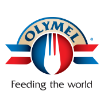
Olymel Alberta Grain Prices
Last updated: Feb 15, 2026 6:14am MT
Phone number: 1-877-682-5041
- Location:
- All
- Alberta
- Saskatchewan
Today's Olymel Alberta Grain Prices − February 15, 2026
Red Feed Wheat
- Feb–Mar: $7.25
Feed Barley
- Feb–Mar: $5.00
View the latest Grain Prices from Olymel — jump to a specific grain below:
Red Feed Wheat
Here's a list of current Red Feed Wheat prices in Olymel locations:
| Location | Delivery | Cash Price |
|---|---|---|
| Falher Compare prices | CAD 7.25 | |
| CAD 7.25 | ||
| Joffre Compare prices | CAD 7.25 | |
| CAD 7.25 |
More about Red Feed Wheat
Red Feed Wheat is a type of wheat primarily cultivated for use as animal feed. Its known for its robust growth and high yield. This type of wheat features a red-colored husk and grains that are rich in protein and nutrients. This makes red feed wheat an excellent source of nutrition for livestock.
Feed Barley
Latest Feed Barley prices in Olymel locations:
| Location | Delivery | Cash Price |
|---|---|---|
| Joffre Compare prices | CAD 5.00 | |
| CAD 5.00 |
More about Feed Barley
Feed Barley is cultivated specifically for feeding animals such as cattle, pigs, and poultry. It provides them essential carbohydrates, proteins, and fiber. Feed Barley is crucial component in mixed feed rations, ensuring balanced diets for animals.
About Olymel
Olymel L.P., established in 1991 through the merger of La Coop fédérée's meat processing operations with Groupe Olympia, has evolved into a leading Canadian producer, processor, and distributor of pork and poultry products. Headquartered in Saint-Hyacinthe, Quebec, the company employs approximately 13,000 individuals and operates over 30 production facilities and distribution centers across five Canadian provinces. Olymel's products are marketed under well-known brands such as Olymel, Flamingo, and Lafleur.
Throughout its history, Olymel has pursued strategic growth through acquisitions and partnerships. In 2001, the company expanded its operations by acquiring a hog slaughtering and butchering facility in Red Deer, Alberta. The merger with Supraliment, the meat division of Groupe Brochu, in 2005, added the Lafleur brand to Olymel's portfolio, enhancing its presence in the processed meats market. Further expansion occurred in 2013 with the acquisition of Big Sky Farms in Humboldt, Saskatchewan, making Olymel a significant player in hog production.
Olymel is committed to innovation and quality, continually improving its products to meet evolving consumer preferences. The company emphasizes social responsibility by adhering to high standards in animal welfare, implementing environmentally friendly processes, and supporting the communities in which it operates. Olymel's mission, "Together, we feed the world," reflects its dedication to providing high-quality food products both domestically and internationally, exporting to over 65 countries.
Olymel FAQ
What is Olymel?
Olymel is a Canadian leader in the production, processing, and marketing of pork and poultry products. Established in 1991, the company operates over 30 plants across five Canadian provinces and exports products to more than 65 countries.
Who owns Olymel?
Olymel is a subsidiary of Sollio Cooperative Group, formerly known as La Coop fédérée. This cooperative has been actively involved in the agri-food industry since 1922 and comprises over 90,000 members.
How many employees does Olymel have?
Olymel employs approximately 13,000 people who contribute to its operations in Canada and its international market presence.
What products does Olymel offer?
Olymel specializes in pork and poultry products, including fresh and processed meats. The company markets its products under various brands, such as Olymel, Flamingo, and Lafleur.
Does Olymel purchase grains from farmers?
Yes, Olymel engages in grain purchasing to support its operations, particularly for animal feed. The company sources grains like red feed wheat, #2 yellow corn, feed barley, feed peas, and faba beans from various locations in Saskatchewan and Alberta.
Futures Market Data: Futures price data on Farmbucks is provided by DTN, CME Group, and ICE. This data is for informational purposes only and may be subject to delays or inaccuracies. Please consult official exchange sources or your broker for trading decisions.
Questions or Feedback: For any additional information, questions, or feedback, please visit our Contact Us page. We're here to help.